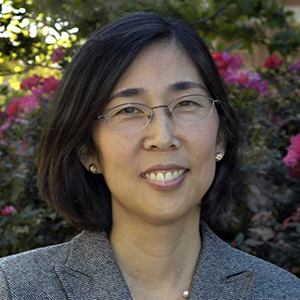
MIDAS Seminar | Women in Computing
Race-Aware Algorithms: Fairness, Nondiscrimination, and Affirmative Action
This event is free and open to the publicAdd to Google Calendar

Zoom link: https://umich.zoom.us/j/94365956826
The growing use of algorithms is increasing concerns that they may discriminate, but mitigating bias requires designers to take account of protected characteristics. If they do so, are those efforts a form of discrimination? Put concretely, if model builders take race into account to prevent bias against blacks, have they engaged in discrimination against whites? Some scholars assume so, and seek to justify those practices as valid forms of affirmative action. This Article argues that they are starting the analysis in the wrong place. Rather than assuming disparate treatment has occurred, we should first ask whether race-aware strategies constitute discrimination at all. Despite rhetoric about colorblindness, some forms of race-consciousness are widely accepted as lawful. Because creating an algorithm is a complex, multi-step process involving many choices, tradeoffs and judgment calls, designers might take race into account in many different ways, not all of which entail disparate treatment against whites. Only if a strategy constitutes disparate treatment is it necessary to consider whether it is justifiable under affirmative action doctrine. This difference in approach matters, because affirmative action programs bear a heavy burden of justification. Treating all race-aware algorithms as forms of disparate treatment reinforces the false notion that leveling the playing field for disadvantaged groups disrupts the entitlements of a previously-advantaged group. It also mistakenly suggests that, prior to considering race, algorithms are neutral processes that uncover objective truth about merit or desert, rather than properly understanding them as human constructs reflecting the choices of their creators.
Professor Pauline Kim is a nationally recognized expert on the law of the workplace and has written widely on issues such as job security, employee privacy, employment discrimination, and judicial decision-making. Her current research focuses on the use of big data and artificial intelligence in the workplace and the implications of these technologies for employee privacy and anti-discrimination law. Professor Kim is the co-director of Washington University’s Center for Empirical Research in the Law. With Marion Crain, Michael Selmi, and Brishen Rogers, she co-authors one of the leading textbooks on employment law, Work Law: Cases and Materials, now in its 4th edition. She holds a courtesy appointment in the Department of Sociology and is a faculty affiliate at the Center for Race, Ethnicity and Equity, and the Cordell Institute. She is also on the program committee of the Privacy Law Scholars’ Conference, and a member of the Labor Law Group and the American Law Institute. Before joining the faculty, she clerked for The Honorable Cecil F. Poole on the United States Court of Appeals for the Ninth Circuit. Following her clerkship, she was the Félix Velarde-Muñoz Fellow, and later a staff attorney, at the Employment Law Center/Legal Aid Society of San Francisco (now Legal Aid at Work). In 2007-08, she was the inaugural John S. Lehmann Research Professor at Washington University Law School, and from 2008-2010, she served as the law school’s Associate Dean for Research and Faculty Development.
 MENU
MENU 
